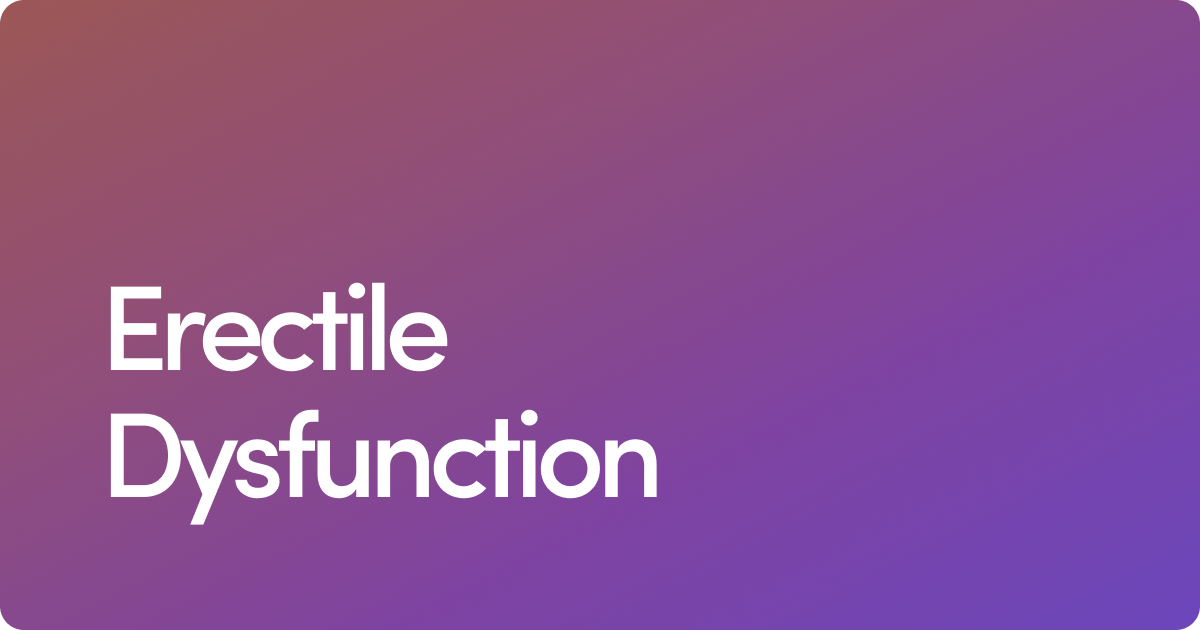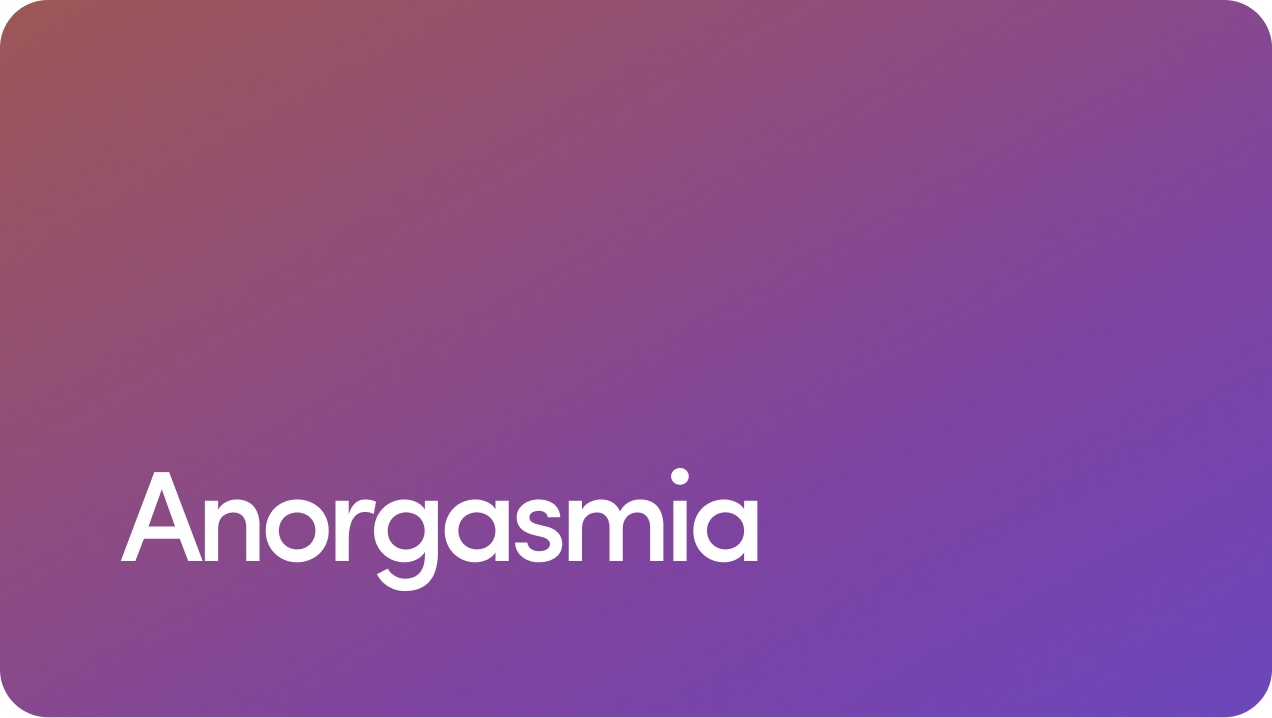Content
Your sex life, your way
Benefits of Ashwagandha for Men

Ashwagandha is an herb that’s been used in medicine for thousands of years, but it’s been enjoying a revival of sorts on TikTok and elsewhere on social media in recent years. Users are extolling ashwagandha’s many potential health benefits—from helping with stress management and sleep to improving athletic performance and sexual function in men.
As with so many herbal supplements, bold health claims associated with ashwagandha don’t always hold up under scrutiny. However, there have been a number of studies that suggest ashwagandha may be worth at least a short-term try. If it doesn’t turn you into a superstar in the bedroom, it may at least provide a little boost on the court or ballfield. And it may help you better handle the stress experienced in those places, work, traffic, and just about everywhere else.
Let’s take a closer look at what this herb really is and what does ashwagandha do for guys, who are looking for a little performance boost or a little help just chilling out.
Content
What is Ashwagandha?
Ashwagandha (Withania somnifera) is an adaptogenic herb native to India and North Africa. Adaptogens are plants, including a wide variety of herbs and mushrooms, that are believed to help the body handle stress, recover from injury, and enjoy improved overall health and wellness.
Ashwagandha is also a mainstay in Ayurvedic medicine, an ancient Indian approach to healing and preventive care that emphasizes natural and holistic practices. It’s also known as Ayurveda.
Ashwagandha is typically available in powder, capsule, or concentrated herbal extract form. The most common ashwagandha dosage ranges from 300 to 600 mg of standardized ashwagandha root extract, taken once or twice daily, depending on the formulation and individual needs. It is usually recommended to take ashwagandha with food to avoid any gastrointestinal upset.
Traditionally used to reduce stress and anxiety, it has been studied for various health benefits, particularly in enhancing vitality, muscle-building, fertility, and stamina.
Stress Reduction and Mental Health
Some of Ashwaganda’s adaptogenic benefits are attributed to natural steroids found in nightshade plants. One of the most touted benefits of ashwagandha is its ability to reduce stress and anxiety. A 2021 systematic review of 41 human studies, published in the Journal of Herbal Medicine, looked for possible ashwagandha benefits in dozens of areas, such as cholesterol management, regulating blood sugar levels, cognitive function, fertility, sexual performance, sleep quality, and many more. The researchers found that the most clearcut benefits of ashwagandha were related to improved stress and anxiety symptoms, based on seven randomized, double-blind, placebo-controlled studies involving 491 participants in that review
A prospective, randomized double-blind, placebo-controlled study, published in the Indian Journal of Psychological Medicine found that participants taking ashwagandha extract experienced a significant reduction in stress and anxiety levels compared to a placebo group. And lastly, a 2019 study discovered that taking 240 milligrams of ashwagandha daily led to a notable decrease in participants' self-reported anxiety symptoms.
Among the possible indirect effects of ashwagandha may be that its stress-relieving powers may help address a common stress-related problem: hair loss, but more research is needed in this department.
What Does Ashwagandha Do for Men?
Ashwagandha benefits for men may include improvements in sexual health and function. For example, there is some evidence to suggest that ashwagandha might help increase testosterone levels, though the research is limited.
Research indicates that ashwagandha may help boost testosterone levels. A 2019 study in the American Journal of Men's Health found that men taking ashwagandha experienced increases in testosterone, which correlated with improvements in strength and overall well-being. However, the differences in well-being between the placebo group and the group that took Ashwagandha were not significant.
Your testosterone levels affect muscle mass, energy levels, and sexual health, so considering ashwagandha or other testosterone boosters is understandable. It’s just important to use them safely and with the guidance of a healthcare professional.
Ashwagandha is also one of the more popular herbs guys use to help treat erectile dysfunction (ED). However, there is limited scientific evidence backing its effectiveness for treating ED. One reason why Ashwagandha might help with ED is because it can help bolster your testosterone levels, which can affect your ability to get hard and stay hard.
Ashwagandha is also associated with increasing a man’s sperm count, and has been used in traditional Indian Ayurvedic medicine as an aphrodisiac for centuries as a way to help improve fertility. Research published in the journal Evidence-Based Complementary and Alternative Medicine showed that ashwagandha supplementation improved sexual performance, including increased sperm count and motility.
Improved Physical Performance
You may also want to try ashwagandha, as it may help boost your athletic performance and physical strength and endurance.
A study published in the Journal of the International Society of Sports Nutrition demonstrated that ashwagandha supplementation was linked to increased strength and muscle mass in those who engaged in regular resistance training. Ashwagandha’s adaptogenic properties may also aid in faster recovery from exercise.
Cognitive Function and Memory
In addition to its benefits for stress and physical health, ashwagandha may also support cognitive function. A 2022 study in the International Journal of Environmental Research and Public Health suggests that ashwagandha supplementation may help with brain functions, such as short-term memory and attention. People in the study showed better performance in reaction times and other measures of mental acuity when taking ashwagandha extract versus a placebo.
Is Ashwagandha Safe?
Ashwagandha, like other supplements, falls under minimal regulation by the Food and Drug Administration (FDA). That means the FDA does not assess and approve these supplements for safety or effectiveness before they reach the market. As a result, there's no guarantee regarding the consistency or quality of the product you're taking. Herbal or dietary supplements aren’t subject to the same strict regulations as prescription and over-the-counter medications.
The National Institutes of Health Office of Dietary Supplements suggests that ashwagandha is generally well tolerated for up to three months of use. The National Center for Complementary and Integrative Health notes that there hasn’t been enough research into the long-term use of ashwagandha to suggest whether it is safe for any condition.
When they do occur, ashwagandha side effects can include drowsiness, as well as nausea and vomiting. In rare cases, ashwagandha may interfere with healthy liver function. Ashwagandha supplements may also interact with certain medications, particularly those for thyroid disorders, autoimmune diseases, or sedatives.
Women who are pregnant or who are breastfeeding, are also advised to steer clear of ashwagandha.
So what is ashwagandha good for? Possibly, a great many things. But there are no guarantees with this widely used herb. The potential health benefits of ashwagandha for men are wide-ranging, from stress reduction to enhanced sexual health and physical performance.
As with any supplement, it is essential to consult a healthcare professional before starting ashwagandha to ensure it is safe and appropriate for your mental and physical health.
Incorporating ashwagandha into your health regimen can be a valuable strategy to improve your overall health, sexual function, and performance, as well as find new ways to de-stress. If your healthcare provider thinks it’s safe for you, consider a short-term tryout for ashwagandha, keeping in mind that we just don’t know the long-term impacts of this ancient little herb.
11 Sources
- Ambiye, V. R., et al (2013). Clinical Evaluation of the Spermatogenic Activity of the Root Extract of Ashwagandha (Withania somnifera) in Oligospermic Males: A Pilot Study. https://pubmed.ncbi.nlm.nih.gov/24371462/
- Lopresti, A.; Smith, S. (2021, August). Ashwagandha (Withania somnifera) for the treatment and enhancement of mental and physical conditions: A systematic review of human trials. Journal of Herbal Medicine. https://www.sciencedirect.com/science/article/abs/pii/S2210803321000142
- Chandrasekhar, K., Kapoor, J., Anishetty, S. (2012, July). A prospective, randomized double-blind, placebo-controlled study of safety and efficacy of a high-concentration full-spectrum extract of ashwagandha root in reducing stress and anxiety in adults. Indian Journal of Psychological Medicine. https://pubmed.ncbi.nlm.nih.gov/23439798/
- Lopresti, A., Drummond, P., Smith, S. (2019, March). A Randomized, Double-Blind, Placebo-Controlled, Crossover Study Examining the Hormonal and Vitality Effects of Ashwagandha (Withania somnifera) in Aging, Overweight Males. American Journal of Men's Health. https://pmc.ncbi.nlm.nih.gov/articles/PMC6438434/
- Ambiye, V., Langade, D., Dongre, S., Aptikar, P., Kulkarni, M., Dongre, A. (2013, November). Clinical Evaluation of the Spermatogenic Activity of the Root Extract of Ashwagandha (Withania somnifera) in Oligospermic Males: A Pilot Study. Evidence-Based Complementary and Alternative Medicine. https://pubmed.ncbi.nlm.nih.gov/24371462/
- Wankhede, S., Langade, D., Joshi, K., Sinha, S., Bhattacharyya, S. (2015, November). Examining the effect of Withania somniferasupplementation on muscle strength and recovery: a randomized controlled trial. Journal of the International Society of Sports Nutrition. https://jissn.biomedcentral.com/articles/10.1186/s12970-015-0104-9
- Xing, D., Yoo, C., Gonzalez, D., Jenkins, V., Nottingham, K., Dickerson, B., Leonard, M., Ko, J., Fairies, M., Kephart, W., Purpura, M., Jager, R., Sowinski, R., Rasmussen, C., Kreider, R. (2022, September). Effects of Acute Ashwagandha Ingestion on Cognitive Function. International Journal of Environmental Research and Public Health. https://pmc.ncbi.nlm.nih.gov/articles/PMC9565281/
- National Institutes of Health Office of Dietary Supplements. (2023, October). Ashwagandha: Is It Helpful for Stress, Anxiety, or Sleep? https://ods.od.nih.gov/factsheets/Ashwagandha-HealthProfessional/#en7
- National Center for Complementary and Integrative Medicine. (2023, March). Ashwagandha. https://www.nccih.nih.gov/health/ashwagandha
- Bjornsson, H., Bjornsson, E., Avula, B., Khan, I., Jonasson, J., Ghabril, M., Hayashi, P., Navarro, V. (2020, April). Ashwagandha-induced liver injury: A case series from Iceland and the US Drug-Induced Liver Injury Network. Liver International. https://pubmed.ncbi.nlm.nih.gov/31991029/
- Commissioner, O. of the. (n.d.). FDA 101: Dietary supplements. U.S. Food and Drug Administration. https://www.fda.gov/consumers/consumer-updates/fda-101-dietary-supplements
Editorial Standards
Hims & Hers has strict sourcing guidelines to ensure our content is accurate and current. We rely on peer-reviewed studies, academic research institutions, and medical associations. We strive to use primary sources and refrain from using tertiary references. See a mistake? Let us know at [email protected]!
This article is for informational purposes only and does not constitute medical advice. The information contained herein is not a substitute for and should never be relied upon for professional medical advice. Always talk to your doctor about the risks and benefits of any treatment. Learn more about our editorial standards here.
Felix Gussone, MD
Education
Doctor of Medicine - Ludwig-Maximilians-University, 2014
Other Certificates & Certifications
Board Certified Medical Affairs Specialist - Accreditation Council for Medical Affairs, 2024
Specialties & Areas of Focus
General Practice
Previous Work Experience
Manager, Medical Content & Education - Ro, 2021–2024
Senior Health Editor - Medium, 2019–2021
Associate Medical Producer - NBC News, 2015–2019
Production Assistant - CNN, 2015
Media Mentions & Features
Dr. Gussone has contributed widely to consumer health news media, including NBC News TODAY and NBC Nightly News, and has written about his own weight loss journey for CNN.
Why I Practice Medicine
Dr. Gussone discovered his passion for creating medical content and educating the public about health while working with CNN’s Dr. Sanjay Gupta. He realized that the media could deliver essential health information to millions, surpassing the reach of one-on-one care in a clinical setting.
Hobbies & Interests
Scuba diving, traveling, cinema, and perfume making
Related Articles
Related Conditions
 Erectile Dysfunction
Erectile Dysfunction
 Premature Ejaculation
Premature Ejaculation
 Low Testosterone
Low Testosterone
 Retrograde Ejaculation
Retrograde Ejaculation
 Pelvic Floor Dysfunction
Pelvic Floor Dysfunction
 Anorgasmia
Anorgasmia